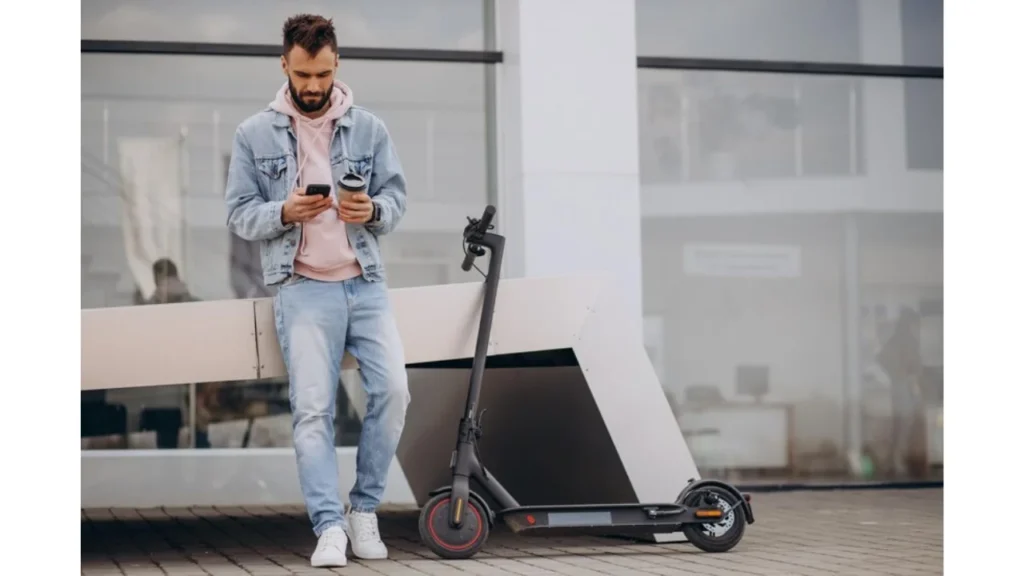Five years ago, Tallahassee launched a three-month trial for rentable e-scooters. This initiative proved successful, leading to their permanent presence in the city. However, there’s a significant catch: these e-scooters are not allowed on any college campus, including Florida State University (FSU), Florida A&M University (FAMU), and Tallahassee State College (TSC).
The geofence that keeps e-scooters off campus seems unnecessary and should be reconsidered for the benefit of students and residents alike.

While personal e-scooters and e-bikes can be used on campus, they face restrictions. Specifically, they cannot be charged inside dorms. FSU has reported incidents of fires caused by lithium batteries in motorized scooters and electric bicycles stored indoors. These fires have led to serious property damage and even fatalities, raising valid concerns about safety.
- Also Read: How to Test Electric Scooter Motor
Despite the e-scooter program offering a convenient transportation option for residents, the restrictions on college campuses limit accessibility for students. Many students rely on personal vehicles to navigate Tallahassee, as public transport options can be limited.
It’s time to rethink these policies to enhance mobility for everyone in the community and ensure that students have safe, efficient transportation options.
FSU’s campus is known for being bike-friendly. However, getting around Tallahassee often requires a car due to the city’s layout. For many students living off-campus, a car may be the only practical option to reach class. Without one, students might face long walks of at least 30 minutes along Tallahassee roads. Overall, the city is not very walkable compared to the campus itself.
Starting this year, FSU began charging $300 a year for overnight parking in garages, excluding Spirit Way Garage and the Stadium Drive parking lot. This change makes it even harder to access FSU’s campus due to transportation challenges. The increased parking fees add another layer of difficulty for students who are already struggling with mobility issues.
Despite these challenges, the availability of e-scooters and bikes on campus could greatly benefit many students. These options would provide a convenient way to navigate the campus and surrounding areas without relying solely on cars. E-scooters could bridge the gap between public transport and walking, making it easier for students to get to their classes.
The ban on charging personal e-scooters and e-bikes in university buildings, along with the prohibition of shared e-scooters on campus, is said to be for safety reasons. However, these restrictions cannot coexist effectively. If safety is truly the concern, then no e-scooters should be allowed on campus at all.
- Also Read: How Much Does an Electric Scooter Weigh
Yet, personal e-scooters are permitted on campus. This means students can bring their electric vehicles into university buildings, including dorms, and charge them without oversight. This situation raises questions about the consistency of safety policies across campus.
Richard Rind, FSU’s Director of Transportation and Parking Services, has a different view regarding rentable e-scooters on campus. “There are ongoing concerns about these companies’ ability to manage the parking and return of rental scooters,” Rind said. He worries that these scooters will be “left on sidewalks, in parking lots, near building entrances, and at the edges of our campus.”

However, there is a viable solution to this issue. By adding charging stations for personal electric bikes and scooters around campus, the university could eliminate reliance on third parties to pick up e-scooters from campus. More importantly, this would benefit the environment as well. Electric scooters and bikes are more eco-friendly than regular cars and even more so than electric cars.
FSU should allow rentable e-scooters on campus despite any concerns about management or safety. They provide a safer and more efficient alternative to driving or walking long distances across campus. Embracing this mode of transportation could enhance student life significantly while promoting sustainability in Tallahassee’s vibrant community.